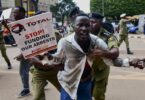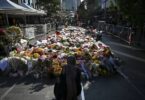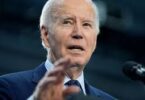Vava Tampa
The killing of Idriss Deby reveals a tangled geopolitical web that is likely to deepen internal divisions in Chad. General Idriss Deby, 68, who misruled Chad for 31-years, died on Tuesday after sustaining injuries in clashes between FACT rebels and his troops over the weekend, the country’s military announced.
Will his death lead to peace in this oil-producing nation of 15 million? A state funeral is due to take place on Friday. Or will it lead to more chaos and crises, making a bad situation worse?
Will FACT leader Mahamat Mahdi Ali translate Deby’s death, which is a game changer, into real political currency and overrun the Chadian capital N’Djamena, where Deby’s replacement, a 37-year-old four-star general, who is none other than Deby’s own son, let’s call him “Déby Le Fils” is regrouping the army for face off?
The internal and geopolitical context of Deby’s death is not particularly promising. Deby Le Pere had gone to the frontline, several hundred kilometres north of N’Djamena, with the bravado of a leader launching a decisive assault to end the Front for Change and Concord in Chad known by its French acronym FACT – the rebel group seeking to overthrow him since 2016 in reaction to his last re-election.
It was a very telling decision. I suspect Deby had taken it to boost his popularity – locally and globally. For one, he had just “won” his sixth mandate with 79 percent of the vote in polls marred by fraud, intimidation and boycott by the opposition. Leading opposition figure, Saleh Kebzabo, withdrew from the vote following a deadly shoot-out at another candidate’s home.
Above all, this was Deby’s first military command since he made himself “Marechal du Tchad” last August to mark Chad’s 60th anniversary. He needed to show he was in control. Or, perhaps, it’s a reflection of how serious Deby took FACT’s advance to N’Djamena – and understandably so. One of Chad’s two key anti-Deby rebellions, FACT has been amassing weapons and personnel in Libya since 2016. It entered Chad on April 11, the day Deby ‘won’ his sixth term after 30-years in power, an act that Deby probably took as an affront to his legitimacy.
FACT’s leader Ali is alleged to have a non-aggression military pact with the renegade general Khalifa Haftar – Libya’s military strongman who controls much of Libya’s east and has been trying to gain control of key oil fields as well as major cities in the south against the United Nations-backed national government in Tripoli.
FACT’s rival UFR, which is overwhelmingly made up of mainly Zaghawa fighters from Deby’s own ethnic community and led by Deby’s own nephews, the twin brothers Tom and Timane Erdimi, on the other hand, is supported by Haftar’s rival’ militias in Misrata, Benghazi and elsewhere.
Top aide de camp to Deby during the 1990 coup d’etat, the twin brothers Tom and Timane Erdimi have held the most sensitive and lucrative portfolios in Chad, including oil and cotton, until 2005 when Deby started his “life presidency project.”
Whilst Tom relocated to Houston in the US, Timane, who is in exile in Qatar (from where he has been remotely commanding his rebellion) first tried to overthrow his uncle in 2008, and again in 2009 after forming the UFR and recently in 2019. Yet on each occasion, France came to Déby’s rescue. France has had a military cooperation agreement with Chad since 1976.
Qatar, which has backed Timane’s rebellion – leading Deby to sever relations and expelling its diplomats – is also providing cash and equipment to the United Nations-backed national government in Tripoli against Haftar.
Perhaps most revealing of all, both Haftar and Deby are actually Paris’ darling strongmen in the region. For France, Haftar’s control of Libya’s strategic eastern borders prevents influx of heavy weapons as well as fighters from Libya and further afield from joining jihadist groups attempting to overrun the Sahel, including Burkina Faso and northern Niger, northern Mali as well as Chad itself. Because of this, Paris has turned a blind to Haftar’s self-declared Libyan National Army’s (LNA), which has been indicted by the International Criminal Court for allegations of war crimes or, if you’d like, “war on terror” in Benghazi and elsewhere in Libya.
Whereas for Haftar, FACT is seen as central to minimising threats UFR and its jihadists backers in Misrata and Benghazi from surrounding and attacking his position from northern Chad. Indeed, in 2018, UFR ridiculed Haftar, claiming that Deby Le Pere had “subcontracted” him to attack their bases in southern Libya.
A Franceafrique pillar, Deby, on the other hand, was seen in Paris as a key regional counter-terrorism partner; contributing a majority of forces in the United Nations peacekeeping mission in Mali as well as to fight Boko Haram in the Lake Chad basin and other jihadist groups in Sahel.
But Deby’s designs didn’t go quite as planned. Unlike in 2019, when Elysee intervened militarily to bail him out – or, in the word of French Foreign Minister Jean-Yves le Drian, “to prevent a coup d’état” as UFR convoys moved towards N’Djamena – this time Elysee refused to bail out Deby even though French fighter jets are based near N’Djamena.
In-spite of Chad’s army claim on Saturday that it had “completely destroyed” a column of rebel pick-up trucks that attacked the country on April 11, a brutal and bloody FACT offensive left Deby severely injured.
In a statement read on state television on Tuesday, military spokesman Gen. Azem Bermandoa Agouma said Deby “breathed his last defending the sovereign nation on the battlefield”. Chad’s former colonial power France paid Deby tribute, calling him a “courageous friend” and “great soldier,” while urging stability and a peaceful transition in the African country. His 37-year-old four-star general son Mahamat Idriss Deby Itno, was immediately named transitional leader in violation of the country’s constitution. Expectedly, both the government and parliament were dissolved, leaving him to rule unchecked for the next 18 months. A nationwide curfew has also been imposed and the borders have been shut.
I suspect all of these things won’t make much difference. Deby’s death will more likely encourage defections within the army, police and intelligence service towards FACT leader Ali.
I imagine many of the 14 generals Deby Le Fils has named as members of his governing council would be wondering if Deby Le Fils, who as head of the elite presidential guard could not protect his father, can he protect them against Ali’s determined and re-energised advancing FACT rebel?
Deby’s death could also promote an internal uprising against his son, feeding off the population’s unhappiness over his father’s abuse and mismanagement of Chad’s oil resources. But who will benefit from all this? Haftar? Ali? Extremist groups in the Sahel? Or Chad’s impoverish 15 million people?






